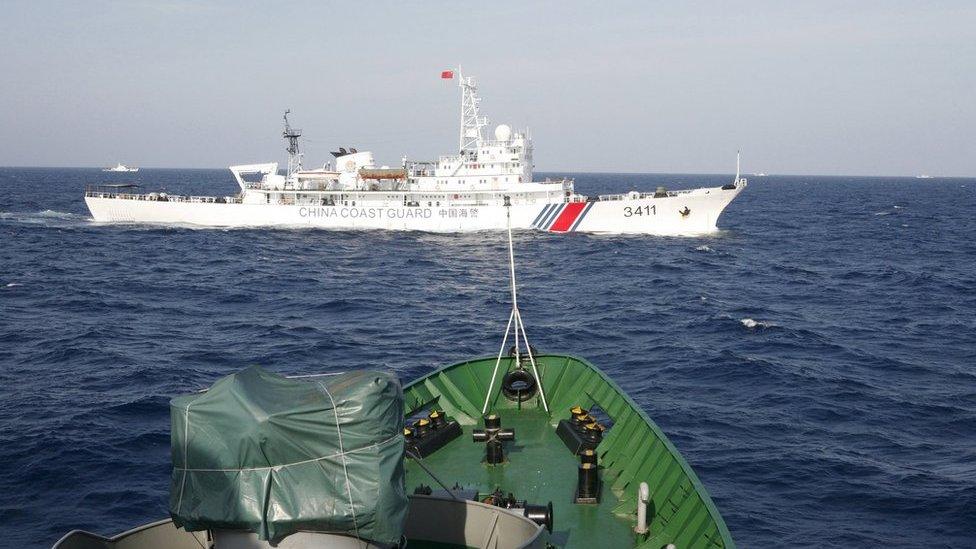China approves new five-year plan as Li reassures on economy
- Published
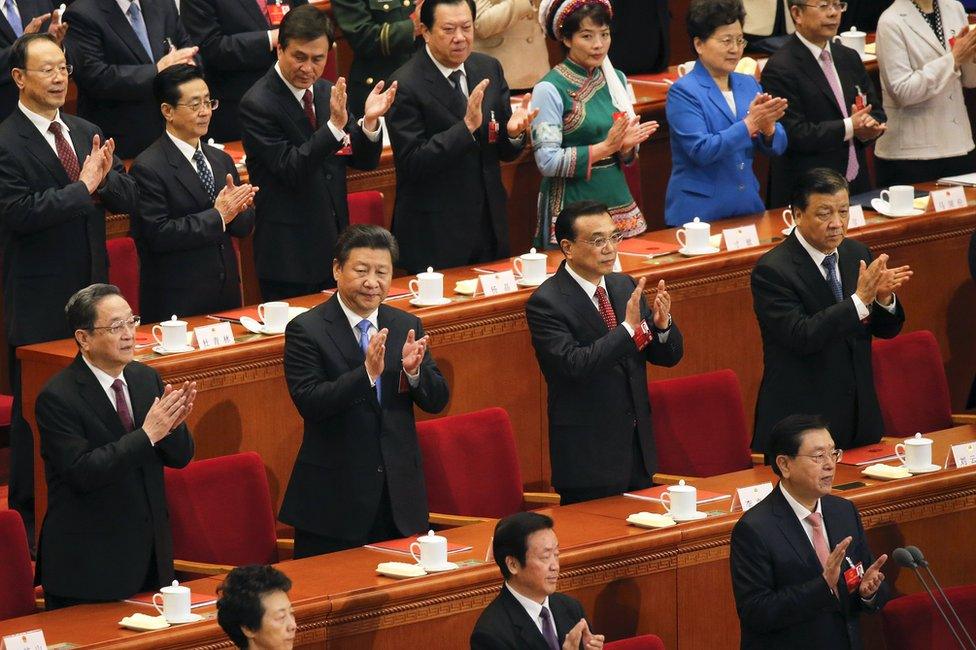
The closing of the National People's Congress meeting on Wednesday was attended by President Xi Jinping and Premier Li Keqiang
China's Premier Li Keqiang has said China's economic growth will stay on track, as the annual meeting of parliament draws to a close.
The National People's Congress ended with the adoption of a new five-year plan for the economy, aiming for 6.5-7% growth a year by 2020.
Measures include cutting high debt, streamlining state-owned enterprises, and reforming financial markets.
China has been facing a period of slower growth and market volatility.
The plan, laid out by Communist Party leaders, received unanimous approval from delegates at the largely rubber-stamp NPC.
At his annual press conference later, Mr Li stressed the importance of reforms to economic vitality.
He acknowledged there would be job losses as reforms were made to state-owned enterprises, particularly in the steel and coal industries, but said there would be no mass redundancies.
The economy would "not suffer a hard landing, we have full confidence in the bright future of the Chinese economy".

Analysis: John Sudworth, BBC News, Beijing
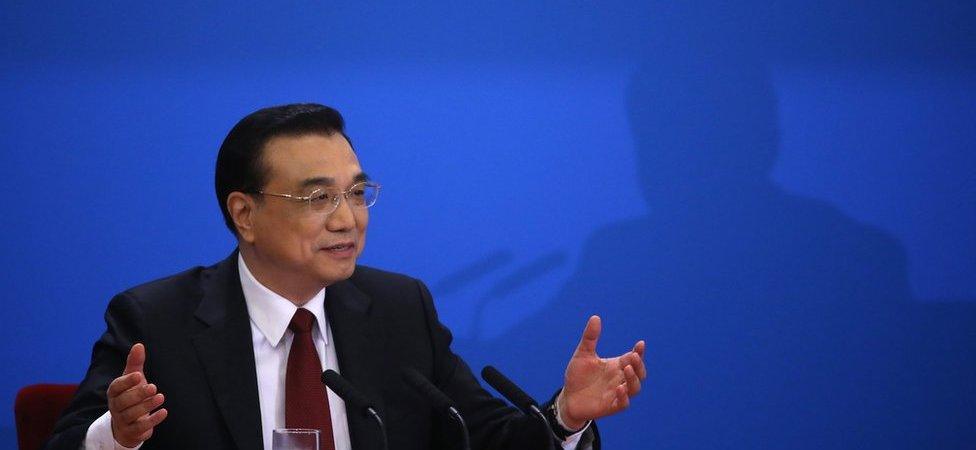
Mr Li addressed reporters at the end of the 12-day NPC meeting in Beijing
The premier's main message was one of reassurance. Yes, China is in the middle of a tricky transition. Yes there are global pressures beyond our control. But China, with its abundant resources and human potential will simply not even entertain the possibility of a "hard landing."
The real problem for anyone trying to assess the strength of that argument is that the past 12 days of parliamentary pomp and ceremony, coupled with Li Keqiang's two short hours of press conference questioning, leave very little room for scrutiny.
There is no real debate on display at the rubber stamp NPC of course. And there is no real testing of the premier either.
Take the question on stock market volatility. Mr Li's answer barely touched on the real issues of the crisis in confidence and the damage wrought by the heavy handed government intervention in its attempt to artificially prop up share prices.
The questions are vetted in advance and no follow-ups are allowed. There is deep irony, therefore, in Mr Li using this highly stage managed event to argue for what is so badly lacking - more media scrutiny of the government.

Concerns have been swirling about the health of China's economy, which expanded at its slowest pace in 25 years in 2015.
Reports in recent week have suggested China may make up to six million state workers redundant over the next few years as part of its shift away from a manufacturing to services-based economy.
In February, the central government launched a $15.3bn (£10.8bn) fund aimed at relocating workers who lost their jobs as part of China's supply-side reforms.
Aside from slumping exports, the stock market saw trillions of dollars lost last summer following unprecedented volatility.
However, the government is still looking to reform its financial markets and increase the use of its currency, the yuan.
Mr Li said there were plans to develop a stock-trading link between Hong Kong and Shenzhen this year, expanding upon a program that already exists between Shanghai and Hong Kong.
To reduce currency volatility and capital outflows, China is also planning to impose a tax that may curb excessive speculation.
- Published15 March 2016
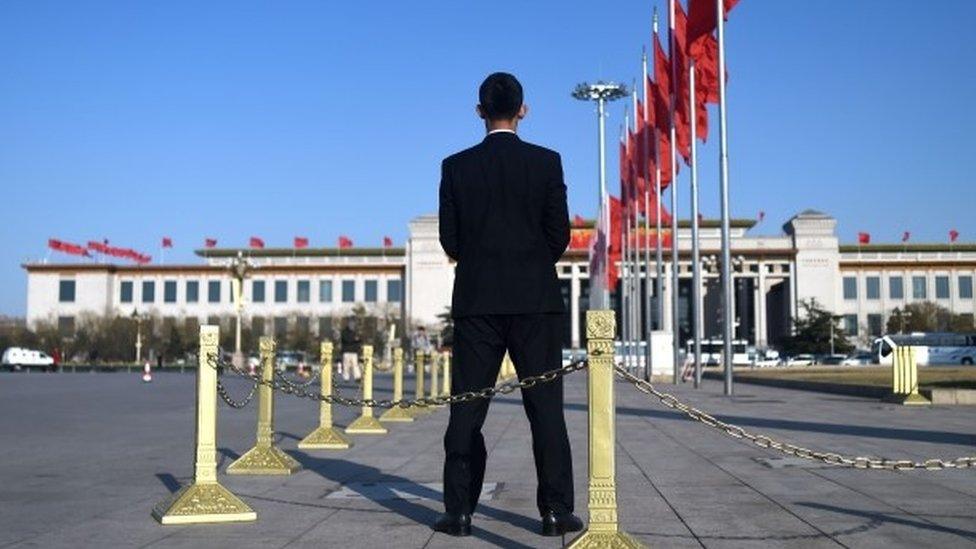
- Published4 March 2016
- Published3 March 2016
- Published5 March 2016
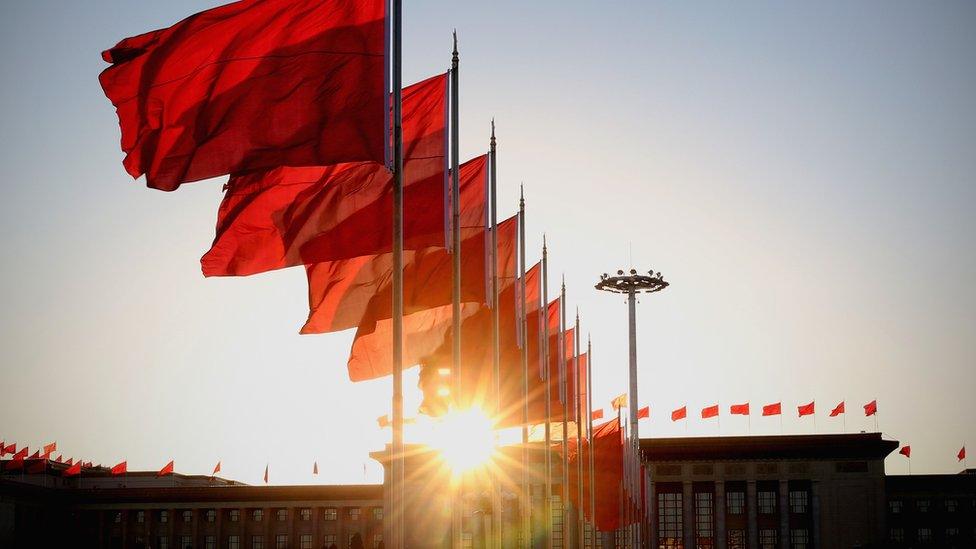
- Published7 March 2016
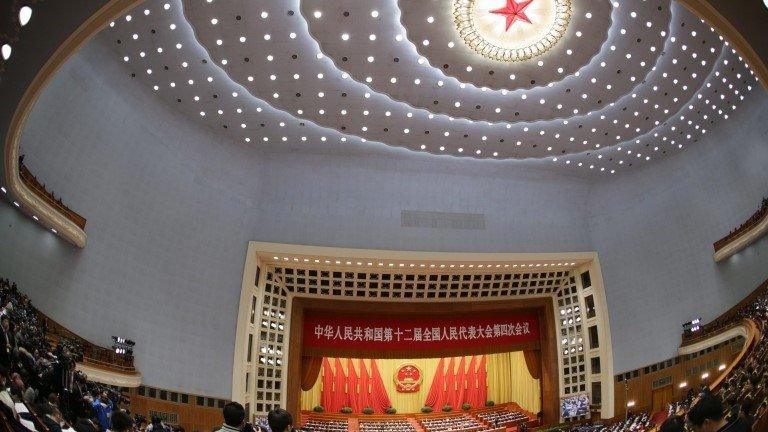
- Published14 March 2016
